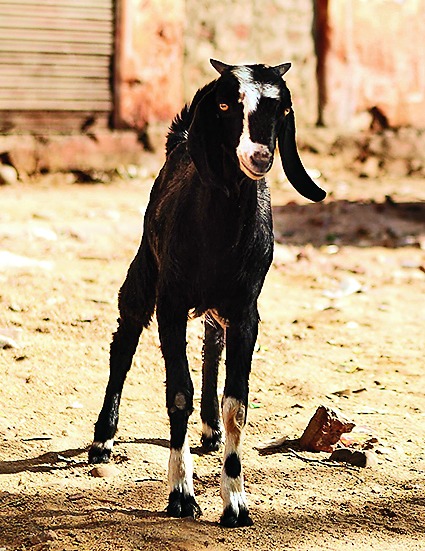
POONACHI, OR THE STORY OF A BLACK GOAT By Perumal Murugan, Context, Rs 499
Nearly two years after announcing his death as a writer, Perumal Murugan marks his rebirth as a novelist with Poonachi, or The Story of a Black Goat. The novel, as a form, has long been associated with the lives of (mostly human) individuals. Murugan's two-part title was inspired by a tradition of Tamil novels, the first of which, Heroic Exploits, or the Story of Pratapa Mudaliar by Samuel Vedanayagam Pillai came out in 1879. The story of Pratapa began with the entry of a stranger into the village, two generations back, which leads to a happy turn of fortune. Poonachi, likewise, begins with a stranger's entry into a village. But the goat he carries in his arms brings no positive change of fortune to the helpful villager's family. This tragic return to the origins of the Tamil novel perhaps gestures towards a rebirth not of the author alone, but of the form as well, that must radically adapt to take on troubled times.
Murugan tells the story of how the feeble Poonachi grows in the family of Asuras, livestock farmers in the semi-arid Odakkan Hill. For the vivid topographic details, Murugan may have drawn on his own experiences growing up in Thiruchengode. The year Murugan wrote Poonachi, Tamil Nadu recorded remarkably low rainfall, but the author tantalizes his readers throughout, resisting easy allegory. Of the characters in the novel, only animals and divinities are named. All humans are anonymous. When there is a congregation, the dialogue is not attributed individually, but comes out of the collective voice of the community. Murugan deals with the question of caste as an everyday, material reality, which is all that the animal, oblivious to the categories created by humans, is able to perceive.
The life and times of Poonachi are told with great compassion. The nervous day-to-day rhythms of the fragile kid transform seamlessly as she comes of age. Her relationship with the old woman and the man develops through touching gaps in communication. Later on she befriends a buck at the old couple's daughter's house and, together, they discover foliage she had never tasted before. Wordless emotions have rarely been depicted so powerfully. They are separated by powers beyond their understanding, and what appears most tragic is not their lack of agency, but the fundamental inability to comprehend any possibility of agency.
There are, arguably, a couple of allusions to contemporary issues. Poonachi has to be taken for a mandatory ear-piercing at a government office because the paranoid State needs statistics about its goat population. One of the citizens at the venue tries making sense of their plight, suggesting that they are being trained to stand in queues because it is a habit worth developing. The commentary could have been as effective had it taken a subtler form and blended better with the novel's rhythm.
Murugan writes that he is "fearful of writing about humans; even more fearful of writing about gods". This comes in the wake of aggressive right-wing tantrums over his 2010 novel, Madhorubhagan. Murugan turns to writing about demons and animals instead. Poonachi speaks truth to power at great risk but not via plain speech. The novel is an act of parrhesia, as Michel Foucault described it, but it's cleverer than that. Murugan achieves two things at once: first, he demonstrates serious treatment of the lives and worlds of animals; second, he shows that certain truths will be recognized by readers within given contexts of power, even if the author's words do not directly suggest it. His stubborn, articulated silence on the lives of humans surely proves more effective than his "death".










